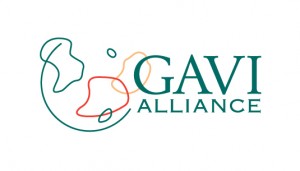The GAVI Alliance has approved US$ 21 million to help improve vaccine supply chains in Nigeria as part of a partnership aimed at scaling up routine immunisation.
The funds will be used by Nigeria’s National Primary Health Care Development Agency to procure vital equipment for storing vaccines and to improve data collection, both of which have been identified as key pillars in protecting children’s lives as enshrined in the government’s Saving One Million Lives Initiative.
Saving One Million Lives Initiative
Launched in 2012 by President Goodluck Jonathan, the Saving One Million Lives Initiative is a scheme aimed at expanding primary healthcare in Nigeria to significantly reduce mortality by 2015.
As part of this initiative, Nigeria has set the target to increase routine immunisation coverage to 87% by the same period. This would provide more than six million children with protection against a range of deadly and debilitating vaccine preventable diseases, such as measles, meningitis, pneumonia, pertussis (whooping cough), tetanus, hepatitis, yellow fever and tuberculosis.
Vital refrigeration equipment
But for this to happen, significant improvements in the country’s vaccine supply chains are first needed. GAVI’s investment will include the procurement of vital refrigeration equipment at key points of the supply chain, at the Federal, state and local government area levels.
The move comes as part of a broader partnership on health system strengthening including vaccine supply chain improvement, that is expected to be complemented with support from other partners including the European Union, UNICEF, Gates Foundation, the Clinton Health Access Initiative, the Japan International Cooperation Agency, the UK’s Department of International Development and the Canadian International Development Agency.
Bridge vital gaps in supply chains
“Improving cold chain equipment will help bridge vital gaps that currently exist in Nigeria’s supply chains,” said GAVI’s CEO, Dr Seth Berkley, making the announcement in the nation’s capital Abuja. “This will not only help Nigeria reach its Saving One Million Lives targets by improving routine immunisation, but it will also play a crucial role in Nigeria’s polio eradication efforts and set the stage for forthcoming new vaccine introductions.”
Tailored approach
With one of the largest number of vaccine preventable deaths in Africa, Nigeria is a priority for GAVI and one which requires a tailored approach.
Since 2000 GAVI has committed more than $670 million in vaccine support for the country, and this latest effort to strengthen cold chains will play an important role in protecting that investment. This includes the provision of vaccines against yellow fever, meningitis A, measles and the recently introduced five-in-one pentavalent vaccines – which combine diphtheria-tetanus-pertussis vaccines with hepatitis B and Haemophilus influenzae type b vaccines.
Quick wins
“Nigeria is taking great strides to boost routine immunisation and is committed to reaching a target of 80% by the end of this year,” said Dr Ado Mohammad, Executive Director of the National Primary Health Care Development Agency. “Through the NPHCDA and the supply chain improvement plan, which is implementation focused, quick wins are being implemented. Now with GAVI’s support we can boost coverage and meet our target of saving a million lives by 2015. Strengthening health systems and improving data collection will ultimately lead to a vicious cycle that will provide more accurate evaluations and better delivery.”
“We look forward to working with the GAVI secretariat and the government to ensure that this investment realises the goal of increasing coverage and reducing mortality,” said Jean Gough UNICEF Country Representative in Nigeria. “More than 23 per cent of child deaths can be prevented through immunisation”.


